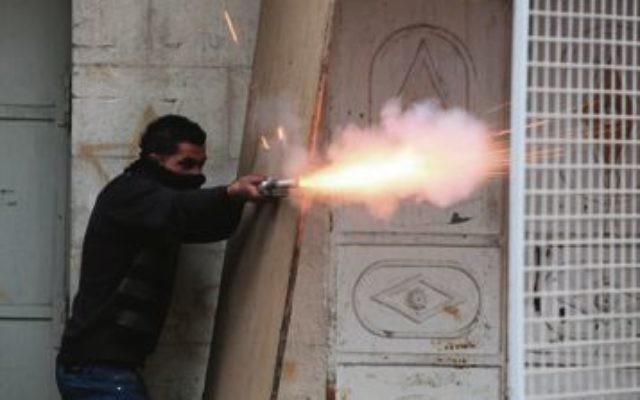Clashes prompt fears of fresh intifada
In what some see as the beginnings of a third intifada, Palestinians across the West Bank held demonstrations and clashed with Israeli soldiers this week.
The unrest began on Saturday, when it emerged that a 30-year-old Palestinian detained by Israel for stone-throwing, Arafat Jaradat, had died in prison. Protests began immediately, many of them turning violent.
As the unrest grew, on Monday two Palestinian teenagers were seriously wounded when they were shot during clashes with soldiers, and Palestinian stone-throwing lightly injured an Israeli child.
The Israeli military said that it has only intervened in the unrest as far as necessary to protect its soldiers and to stop things from getting out of hand.
“We follow the events on the ground from close by while we try to be as passive as possible,” spokesman Arye Shalicar told The AJN.
Gaza militants joined in with the violence, with the first transgression of the ceasefire that has been in place on the Israeli-Gaza border since November. They fired a rocket on Tuesday which landed south of Ashkelon. Shortly afterwards, President Shimon Peres visited the area and said that Palestinians “have no interest in raising the flames but if they fire then they can expect a response.”
As the clashes continue, so does the controversy over what happened to Jaradat. Palestinian Authority spokeswoman Nour Odeh told The AJN: “The preliminary information from the autopsy, as reviewed by the Palestinian doctor who attended, indicated evidence of mistreatment.” Saber Aloul, the PA’s chief pathologist who attended the Israeli-led autopsy, reported that he saw evidence of torture.
But the Israeli Heath Ministry claimed in a statement that during the autopsy “no signs of external trauma were found apart from those pertaining to resuscitation [attempts] and a small graze on the right side of his chest.” It said that the initial findings “cannot determine the cause of death”.
Nagy Shurrab, professor of political science Al-Azhar University in Gaza city, told The AJN that he fears the unrest could become an intifada, and said that in the short term it may impact US President Barack Obama’s upcoming visit, making it “too difficult for him to visit the Palestinian territories”.
Husam Zomlot, a senior official in Fatah, the dominant party in the PA, told The AJN that he considers the West Bank to be in a “sensitive volatile situation”, but not teetering on a new uprising.
NATHAN JEFFAY


comments